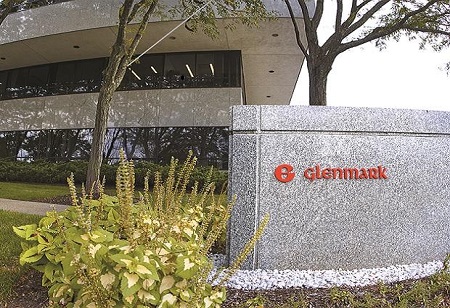India Pharma Outlook Team | Friday, 16 September 2022

Glenmark Pharmaceuticals is banking on global rollout of specialty respiratory drug Ryaltris, making its US-based innovation unit Ichnos self-sustaining through more licensing deals, and expansion of branded formulation business in India, to help pare its debt and generate free cash flows. "We have many drivers... Ryaltris will be a significant margin driver in the coming years," Glenn Saldanha, chairman and managing director of the Mumbai-headquartered drugmaker, told in an interview.
"R&D costs coming down will help us improve margins (and) enhance free cash flow generation for further debt reduction, and closing out one to two out-licensing agreements in our innovation pipeline," he said. Saldanha said he doesn't see any problem in sustaining 19% Ebitda margins in FY23 and beyond. Glenmark ended FY22 with revenues of ₹12,305 crore, and projects to hit ₹13,000 crore in FY23. Glenmark had gross debt of ₹3,765 crore as of June 30, 2022.
The firm over the years accumulated debt to fund its innovation-led R&D and fund capex, but with growth in key US market stuttering, it has been focusing on cutting debt and improving cash flows. In FY22, Glenmark reduced its debt by around ₹1,200 crore. Ryaltris nasal spray used for treatment of seasonal allergic rhinitis is likely to contribute about $120-150 million per annum in the next 4-5 years, Saldanha said. "This is a major brand worldwide, which will be a substantial contributor to Glenmark, through our partnerships as well as our own commercial front end," he said.
Glenmark's US partner Hikma launched Ryaltris in the US, while its partner in the EU, Menarini initiated the commercial launch in Ireland in the first quarter, and intends to launch the product in additional European markets in the coming quarters. Saldanha said Glenmark is working with partner Yuhan Corporation in South Korea, for commercial launch in Q2FY23 and has initiated enrolment in phase-3 study in China in April 2022 through its partner Grand Pharmaceutical (China). Saldanha said he expects Ryaltris launch to give a boost to Glenmark's US business, which contributes about one-fourth of the firm's overall revenues.
Glenmark has been struggling in the US on account of steep price erosion witnessed in that market. Along with Ryaltris, the company's other potential big launch in the US would be a generic version of asthma inhalation drug Flovent, where it is conducting clinical trials on over 2,600 patients, Saldana said. The company is planning to file generic Flovent with USFDA in 2023, and a potential launch by 2025. Flovent has sales of $1.6 billion in the US, and Teva is also in the race for the generic version. On R&D asset monetisation plan under its US subsidiary Ichnos, Saldanha said he intends to out-license the remaining three to four assets over the next 18 to 24 months, and wants to see the R&D unit self-sustaining.
Currently, Glenmark funds Ichnos' R&D programmes. Saldanha said he saw R&D expenses on the innovation pipeline coming down from $100 million per year, to about $80-85 million. Glenmark has a pipeline of five biologic drugs under development, including bi-specific and multi-specific antibodies that hits two or more targets, along with monoclonal antibodies to treat cancers and autoimmune diseases. The company out-licensed ISB 880 to Spanish drugmaker Almirall in December last year.